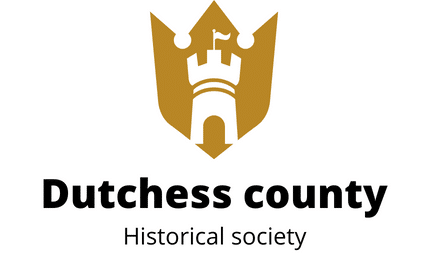Can Employing a Nutritional Genomics Approach Tailor Diets for Better Athletic Performance?

The notion of personalized nutrition has gained ground in recent years, primarily driven by the advent of genomics. The study of nutrition and genetics, often referred to as nutritional genomics, posits that the interaction between diet and genes can influence health. In this context, the manipulation of diet based on an individual’s genetic makeup could potentially enhance athletic performance. This article will delve into the concept of nutritional genomics, its potential in enhancing athletic performance and the role of leading research databases, including Google Scholar, PubMed, and Crossref, in propelling this field forward.
The Confluence of Nutrition and Genetics: An Overview
Nutritional genomics, also known as nutrigenomics, is a scientific discipline that studies how our bodies respond to nutrients based on our genetic variation. As a subset of molecular biology, nutrigenomics has emerged as a promising tool in personalized medicine and dietetics.
Have you seen this : How Can Blue Space Environments, Such as Beaches and Waterfront Parks, Affect Mental Health?
The genes we inherit from our parents play a crucial role in determining various aspects of our physical health, from our body’s metabolism to our risk of developing certain diseases. However, the gene sequences themselves are not the only factors at play. Our diet also plays an essential role in determining our health outcomes.
Nutritional genomics explores the relationship between individual dietary intake and the body’s genetic response. The aim is to create personalized dietary recommendations based on each individual’s genotype. This means that instead of following general dietary guidelines, individuals could potentially follow a diet specifically tailored to their genetic makeup.
This might interest you : How Does Art Therapy Benefit Adolescents with Social Anxiety Disorder?
Diet and Athletic Performance: A Genetic Perspective
The potential of nutritional genomics doesn’t stop at disease prevention or treatment. It extends into the realm of sports and fitness, where the right nutrition can significantly impact an athlete’s performance.
Research studies have established that a person’s nutrition can affect physical conditioning and athletic performance. However, the one-size-fits-all approach may not be the most effective anymore. Athletes often have different nutritional requirements based on their physiology, the nature of their sport, and their training intensity.
By understanding an athlete’s genetic makeup, we can learn about their susceptibility to certain nutritional deficiencies, how efficiently they metabolize different types of nutrients and their risk for certain injuries. Such insights can then be used to tailor their dietary intake accordingly, potentially enhancing their performance.
Role of Google Scholar, PubMed, and Crossref in Advancing Nutritional Genomics
The vast world of nutritional genomics is continually evolving, and it is primarily due to the pivotal role played by research databases like Google Scholar, PubMed, and Crossref. These platforms have become essential tools for both researchers and individuals interested in understanding the latest developments in this field.
Google Scholar and PubMed provide access to a plethora of scientific articles and studies on nutritional genomics. These platforms are not only repositories of scientific literature but also serve as platforms for researchers to share their findings with the broader scientific community.
Crossref, on the other hand, is an informative database that links research outputs together, making it easier for anyone to find, cite, link, and assess scholarly work in digital content.
Challenges and Potentials of Nutritional Genomics for Athletic Performance
While the potential of nutritional genomics for enhancing athletic performance is promising, it is crucial to recognize that the field is still in its infancy. Many of the studies conducted so far have been small-scale, and the findings often need further validation.
Despite these challenges, the potential of nutritional genomics for athletic performance is immense. As more research is conducted and more data becomes available, it will become increasingly feasible to tailor an athlete’s diet to their genotype for optimal performance. However, this does not eliminate the need for expert advice. Professional guidance from dietitians, genetic counselors, and sports coaches will remain essential in interpreting genetic information and translating it into practical dietary recommendations.
This article has offered an insight into the realm of nutritional genomics – a rapidly evolving field that could redefine our understanding of diet and health. As this science continues to evolve, it might become commonplace for athletes to employ a genetically tailored diet to achieve their maximum potential.
The Future of Nutritional Genomics: Genetic Testing and Precision Nutrition
The future of nutritional genomics lies in the intersection of genetic testing and precision nutrition. Genetic testing provides valuable insight into an individual’s genetic variation, including their genetic variants and gene expression. This information can be used to understand how an individual’s body will likely respond to certain dietary factors.
Precision nutrition takes this concept a step further. By taking into account an individual’s genetic makeup, as well as additional factors like gut microbiota and body composition, precision nutrition can provide personalized dietary recommendations. These tailored diets are not just for disease prevention or treatment, but can also be designed to optimize athletic performance.
Recent studies have shown that personalized nutrition plans based on genetic testing can improve athletes’ body composition, increase their endurance, and reduce their recovery time. For example, an athlete with a particular genetic variant might be more prone to inflammation and muscle damage after intense exercise. A personalized nutrition plan could include anti-inflammatory foods to help speed up recovery.
However, the field of nutritional genomics requires more research to fully understand the relationship between gene diet interactions and athletic performance. Currently, genetic testing for the purpose of optimizing athletic performance is not yet widely available, and the results are not always clear-cut. In the future, the hope is that as more research is undertaken, the science of nutritional genomics will become more precise, and personalized diets will become an integral part of athletic training.
Conclusion: The Potential of Nutritional Genomics for Athletic Performance
As we continue to delve deeper into the world of nutritional genomics, the goal is to transition from a one-size-fits-all approach to a more personalized, tailored approach to nutrition and athletic performance. The advent of genetic testing and precision nutrition contributes to this objective, providing key insights into an individual’s genetic makeup, and how that affects their physiological response to nutrition.
The potential of personalized nutrition for enhancing athletic performance is immense. With advances in research and scientific databases like Google Scholar, PubMed, and Crossref, we’re gaining access to more insights into nutritional genomics.
However, despite the promising prospects, it’s important to remember that the science of nutritional genomics is still in its early stages and interpretation of genetic data should be done with care. It’s a complex process that involves understanding the interactions between countless genes and dietary factors.
Professional guidance from dietitians, genetic counselors, and sports coaches is essential when translating genetic information into practical dietary recommendations. In the future, it’s likely that personalized diets will become an integral part of an athlete’s training regimen, thanks to the expanding knowledge and understanding of nutritional genomics.
With the rapid advancements in nutritional genomics, it’s an exciting time to be involved in any capacity in sports and nutrition. As we continue to learn more about the complexities of our genetic makeup and its interaction with our diet, the prospects for personalized nutrition and enhanced athletic performance are looking increasingly promising.
